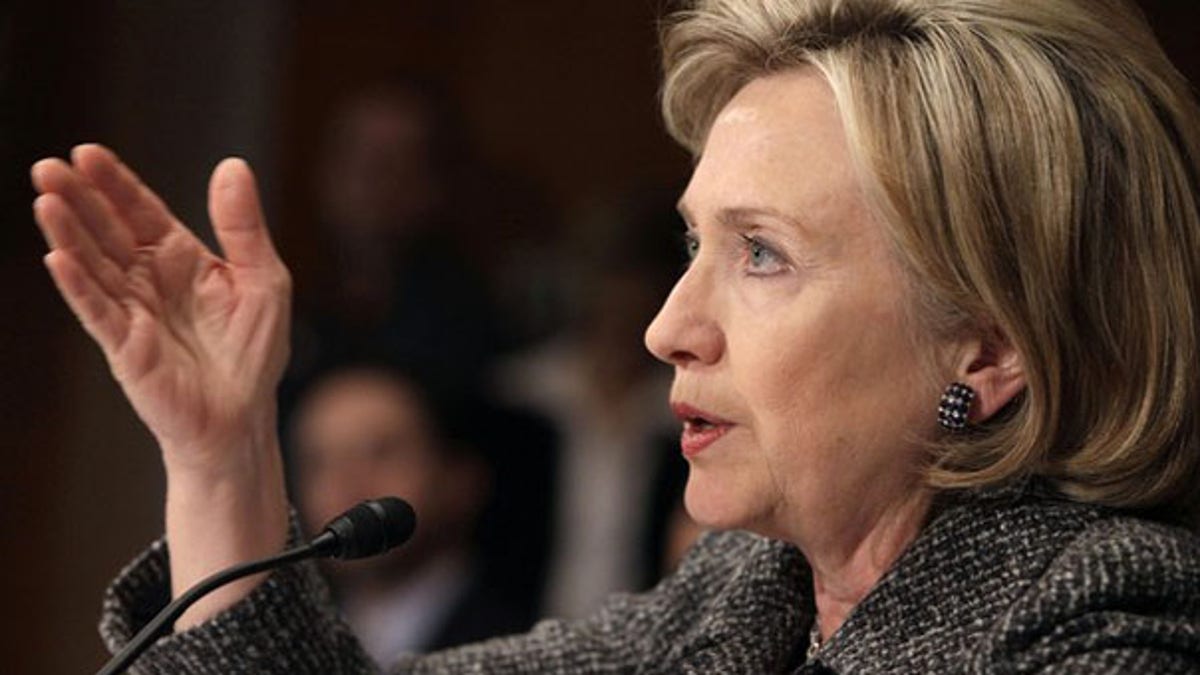
Secretary of State Hillary Clinton testifies before the Senate Foreign Relations Committee on Capitol Hill Feb. 24. (Reuters Photo)
Lawyers for former Secretary of State Hillary Clinton, seeking to avoid her deposition testimony, repeatedly informed U.S. District Court Judge Emmet G. Sullivan that her use of the clintonemail.com system was nothing more than a continuation of her standard “practice.”
Judicial Watch attorneys only seek to question Mrs. Clinton for no more than three hours as part of a discovery process that already saw the testimony of several witnesses, including her top State aides, Cheryl Mills and Huma Abedin.
But her legal team claimed in a court hearing before Judge Sullivan last week that questioning Secretary Clinton about her motivation for the use of the system would not yield any additional information other than that it was simply for her own “convenience.”
But it seems that Mrs. Clinton’s email claims change every time she’s asked about the issue.
On “60 Minutes” this past Sunday evening, Mrs. Clinton again raised her claim of convenience. Only this time, she did so with an added twist that had Judicial Watch going back to Judge Sullivan to further press our case that there is far more to her email claims than she has thus far divulged. The tell-tale exchange with interviewer Scott Pelley went thusly:
PELLEY: Why did you do that, have the private email servers?
CLINTON: You know, Scott, other people did have – other secretaries of state, other high-ranking members of administrations, plural. And it was recommended that it would be convenient, and I thought it would be. It's turned out to be anything but.
And there, for the first time ever, Mrs. Clinton openly admitted that her use of a non-state.gov email system that compromised national security – and that subverted Freedom of Information Act requirements – was “recommended” by someone else to her. Someone else, we now learn, told her to use this system for “convenience.
So, in our filing of a notice of “New, Relevant Information” Tuesday evening, Judicial Watch cited this latest Clinton email revelation as more good reason for her testimony:
If a State Department official, such as the executive secretary or the legal advisor, recommended that Secretary Clinton use a non-state.gov system for State Department business, such evidence could demonstrate the State Department’s role in the decision.
Similarly, if someone who understood the secretary’s FOIA obligations recommended Secretary Clinton’s use of the system, such evidence could suggest that the motivation was more than just convenience.
Again, Hillary Clinton has never previously suggested that her decision to use the clintonemail.com system for official government business was based on someone else’s recommendation.
We don’t know exactly what she told the FBI, but nothing in FBI Director Comey’s public statement and congressional testimony about the Clinton email issue suggests that Clinton blamed someone else for her email woes.
And now, because of the new issue that she just raised in response to a softball question, Hillary Clinton bolstered our argument that her testimony under oath is essential to help the courts and the public get complete answers about Clinton’s illicit email practices during her time on the public dime at the State Department.
